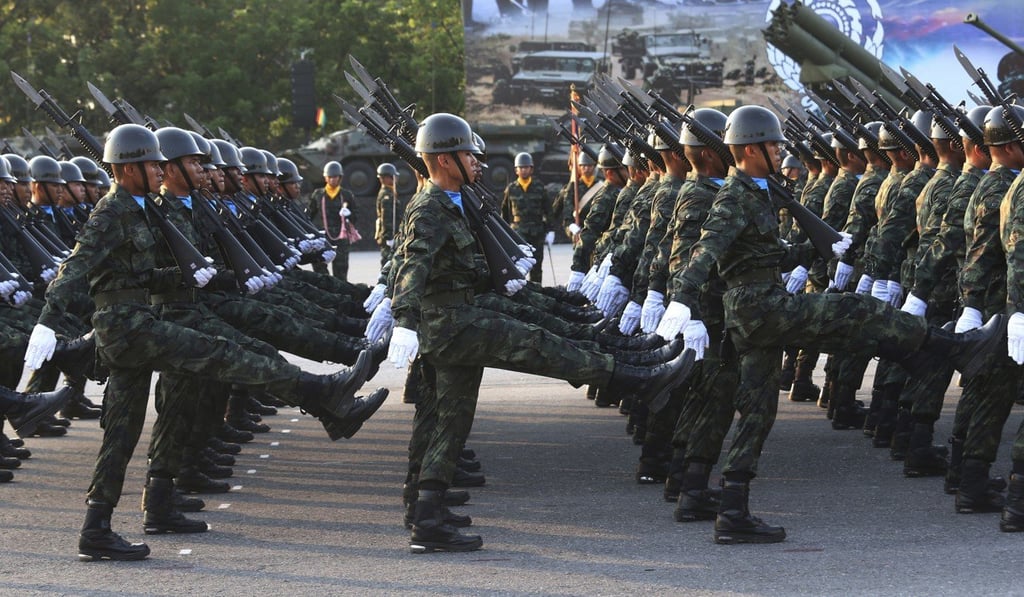Advertisement
Opinion | Chinese arms: cheaper than US, no strings attached. Thailand is sold
- Beijing has filled a void in Thailand’s arms imports since Washington scaled back cooperation after the country’s 2014 military coup
- But the United States remains Bangkok’s most important security partner and Thailand is keen to strike a balance between the two powers to meet its needs
Reading Time:4 minutes
Why you can trust SCMP

In Southeast Asia, Washington’s loss is often Beijing’s gain, and the Thai military might be seen as the latest example. Since the country’s 2014 coup, Thai-China military ties have gone from strength to strength. America’s negative response to the armed takeover saw the administration of former US president Barack Obama cut US$4.8 million in financing for Bangkok’s acquisition of US defence equipment, services and training. Washington also cancelled or downsized joint military exercises.
Amid the cooling ties, Thailand’s ruling junta sought out China to fill the void. Sensing an opportunity to increase its influence in the kingdom and undermine the US-Thai alliance, China responded positively, just as it has done with many other nations in similar situations.
The absence of territorial or maritime boundary disputes between the two, unlike many Southeast Asian neighbours, has made this process all the more smoother.
Advertisement

China has agreed to supply Thailand with three diesel-electric submarines for US$1.03 billion in the biggest defence deal in the kingdom’s history, as well as 48 battle tanks, making the country the first in Southeast Asia to order Chinese submarines.
Advertisement
Beijing offered a package deal no other nation could match: three brand-new S-26T submarines for the price of two, including combat systems, crew training and a 10-year repayment period.
Advertisement
Select Voice
Select Speed
1.00x
